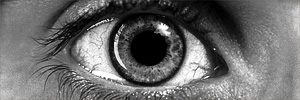
Black Swan

BLACK SWAN (Blu-ray + DVD and Digital Copy)
20th Century Fox Home Entertainment
Release date: May 16th 2011
Certificate (UK): 15
Running time: 103 minutes
Director: Darren Aronofsky
Writers: Mark Heyman, Andres Heinz, John J. McLaughlin
Composer: Clint Mansell
Cast: Natalie Portman, Mila Kunis, Winona Ryder, Vincent Cassel, Barbara Hershey
When I was little my mother had a music box with a little ballerina twirling to the music of Swan Lake. As she spun she would glimpse her own reflection in the mirror on the inner lid, and it seemed like there were always two of them. Until one day I dropped it. The ballerina broke in half and the music would no longer play.
Black Swan reminds me of that music box and the way I would lose myself in its world. The movie stars Natalie Portman as Nina, a timid, shy and sexually repressed dancer in a New York City ballet company who has just won the role of the Swan Queen in a new production of Pyotr Tchaikovsky’s Swan Lake. As the role requires her to be both the White Swan and the Black Swan, Nina struggles to find that darker side of herself.
She is pushed by her director Thomas (Vincent Cassel), her mother Erica (Barbara Hershey) and a beautiful new rival, Lily (Mila Kunis) until she breaks in half, arriving at an inevitable, burning climax.
Aronofsky had grown up witnessing first hand his own sister’s tough training as a ballet dancer, so the idea for Black Swan had many years to marinate. It was intended as a companion piece to his previous film The Wrestler (2008) since both films embody the idea of what a performer has to go through to achieve the perfect performance. Aronofsky explains:
At times Black Swan is very David Lynch-like in its depiction of Nina’s fractured world. It’s a place where doppelgangers roam freely and you’re never quite sure which side of the mirror you’re on. There are moments when Nina tears at herself as the Black Swan struggles to break out; these scenes are compelling yet difficult to watch because of the harm she wreaks on her own body.
Other scenes are mesmerizing for the raw sexuality and voyeurism they invite us to. The club scene which plays to the sounds of The Chemical Brothers, although a sharp contrast to Nina’s world, is a brilliant juxtaposition of colours and sounds.
Natalie Portman and Mila Kunis spent ten months preparing for their roles which meant intensive ballet training. They give incredible performances, but it’s Portman who the spotlight is on, the camera never leaves her, and in a way we see her digging for perfection as much as Nina does for her role.
Winona Ryder as the fading star Beth, who is too old to dance, reminds us how short the shelf life is for these performers who give their lives to art in return for those fleeting moments of perfection. Sadly, we never see her dance but we can take it on faith that she’s a girl who doesn’t like to be interrupted.
- Black Swan Metamorphosis (48:55)
- Theatrical Trailer (2:02)
- Ballet (2:33)
- Production Design (4:00)
- Costume Design (3:55)
- Profile: Natalie Portman (3:16)
- Profile: Darren Aronofsky (2:48)
- Conversation: Preparing for the Role (3.53)
- Natalie Portman (5.56)
- Winona Ryder (2:17)
- Barbara Hershey (3:37)
- Vincent Cassel (4:43)
- Direct Effect Darren Aronofsky (6:23)
The score by Clint Mansell takes Tchaikovsky’s music from Swan Lake to a new level. The pieces are haunted with something darker running alongside it, like Nina.
Black Swan is far more amazing, beautiful, terrifying and intoxicating than I expected. Despite it being Lynchy in some respects, the story is told linear and without riddles. It also reminds me of Lars von Trier’s Dancer In The Dark (2000), Kafka’s Metamorphosis and Steven Klein’s art exhibit X-STaTIC PRO=CeSS . Yet Black Swan remains quintessentially Aronofsky: challenging and absorbing.

Patrick Samuel
The founder of Static Mass Emporium and one of its Editors in Chief is a composer and music producer with a philosophy degree. Static Mass is where he lives his passion for film and writing about it. A fan of film classics, documentaries and World Cinema, Patrick prefers films with an impeccable way of storytelling that reflect on the human condition.
You can find his music on Soundcloud .
© 2012 STATIC MASS EMPORIUM . All Rights Reserved. Powered by METATEMPUS | creative.timeless.personal. | DISCLAIMER, TERMS & CONDITIONS
HOME | ABOUT | CONTACT | TWITTER | GOOGLE+ | FACEBOOK | TUMBLR | YOUTUBE | RSS FEED
CINEMA REVIEWS | BLU-RAY & DVD | THE EMPORIUM | DOCUMENTARIES | WORLD CINEMA | CULT MOVIES | INDIAN CINEMA | EARLY CINEMA
MOVIE CLASSICS | DECONSTRUCTING CINEMA | SOUNDTRACKS | INTERVIEWS | THE DIRECTOR’S CHAIR | JAPANESE CINEMA




 Please wait...
Please wait...




